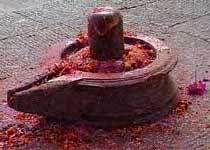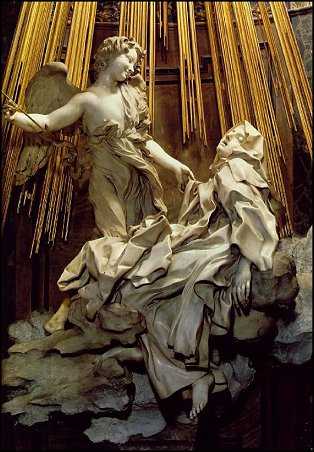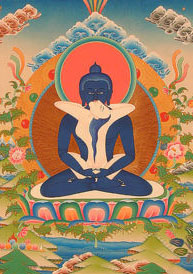One more blog: The Esperanto Club of Hampton Roads.
Month: August 2007
Who’s your Daddy?
- Luke Skywalker loses his mother moments after his birth, and, raised by Uncle Owen and Aunt Beru, thinks himself an orphan.
- Dorothy Gale (in the Wonderful Wizard of Oz) is an orphan raised by Uncle Henry and Auntie Em.
- Peter Parker, the amazing Spider-Man, was an orphan raised by his Uncle Ben and Aunt May.
- Harry Potter, the young wizard fated to fight Lord Voldemort, is an orphan raised by his Uncle Vernon and Aunt Petunia.
- Ofelia, the protagonist of Pan’s Labyrinth, is half-orphaned, and goes in search of her mystical ancestry.
- In Stardust, the new Neil Gaiman movie, Tristan is raised by his father but never knew his mother, who lives in a magical realm.
- Frodo Baggins, the hobbit charged with destroying the One Ring, was orphaned and adopted by a cousin named Bilbo.
- In Night Watch, Yegor is raised with no knowledge of his father.
This theme isn’t just in contemporary fiction, but runs in Scriptures as well:
- Moses was raised as a worldly prince, ignorant of his heritage in a covenant with God.
- When his mother Mary chided him for worrying his father and her, Jesus replied that his true Father was God. (Lk 2:48-49)
Why is this theme so universal? For millennia, many of the greatest accounts of heros, teachers, and mystics have been associated with mysteries about their birth and origins. But as I said before, all the stories are about you.
Nothing in your circumstances can account for why you’re here. You can thank your parents for giving you a body, but what gave you you? There’s a mystery in our origins. We don’t know where we have come from. Where does consciousness come from, life come from? Material answers simply lead to the question of where does matter come from? What made the Big Bang go bang? Where do I really, really come from?
This is one of the ultimate questions, or better yet, a part of the ultimate question. A Zen koan sharpens it this way: What was your face before your parents were born?
The stories tell us that finding your origin will be a spiritual earthquake. Luke Skywalker discovered that his father was one of the most powerful warriors in the galaxy, now intent on enslaving worlds. Dorothy killed the Wicked Witch of the West. Harry Potter discovers his wizard talents and his destiny to fight the most powerful and evil dark wizard. Peter Parker dedicates himself to protecting the population of his city. Ofelia learns she is the princess of an underground paradise, hidden from humans. Tristan discovers his heritage, happiness, and eternal life. Frodo destroys the inexorably corruptive Ring. Yegor choses between the dark and light sides.
Moses emancipated a nation. Jesus forgave the sins of the world.
What will you do? It’s time to find out. Who’s your Daddy?
Mysticism and sexuality
I want to thank everyone who commented on my last post. I also want to clarify and dig deeper into part of the huge area I addressed in it. What I was really wondering when I asked “why is it so often the renunciates who are the one who elucidate sacred sexuality,” I didn’t mean simply sexuality in general, which comes with strong conditions attached to it in virtually ALL cultures, but the tantric, spiritual aspect of sexuality; sexuality as a reflection of the union of the soul with the divine. Why is it celibate Buddhist monks who are the ones who present the yab-yum with the Buddha and his consort? Why is it St. John of the Cross and St. Teresa who present us with the erotic images of the soul in passionate union with God?
There certainly are exceptions: the Sufi poets, married Indian gurus, etc. But I’ve never heard a Christian layperson say anything like, “what you are doing is expressing the passionate giving of God pouring his love into the world. You are being God for each other, the soul for each other.” However, the mystical meaning of sexuality is quite often, in East and West, presented most strongly by renunciates.
A couple of comments suggested that it was double-speak or sexual frustration on the part of the celibates. I think there’s something deeper at work. As I said before, desire is tricky… I think that some degree of spiritual growth is necessary for sex to be even be able to be seen as something essentially giving. The desire to “get” permeates sex: Get some, get laid, get off. I think it takes some degree of taming the “getting” engine of the ego, before sexuality can be seen as spiritual activity… one certainly doesn’t have to be a celibate to do so, but the monastic traditions, East and West, were created largely for that purpose. Now, things are beginning to change a bit… millions of laypeople are discovering mysticism within their faith, and sacred sexuality is beginning to be addressed. You might hear of Christian tantra sooner than you’d think.
sex
Ah, so I got your attention! Yesterday, I wrote my first poem in Esperanto… unfortunately, I neglected to save it on my computer, and when my machine did one of its random reboots, it was lost and I haven’t been able to recover it. However, I wasn’t going to post it, anyway. It was, ahem, a very tantric sort of prayer, very personal, and let’s just say it didn’t hold anything back!
It was born of a powerful impression I had upon awakening, of the union of sexuality and spirituality. I sat in meditation, and while I just focussed on my breathing, the poem, in images and words, impressed itself upon me. It wasn’t marked by really any particularly strong feelings, despite some extremely passionate imagery. Horniness was the metaphor, not the message or the vehicle. (Well, a little bit of the vehicle, but not as much as you’d think.)
Sex is not only the ultimate physically unifying action, it’s also a powerful image of unification. That seems to be where my poem was coming from, the awareness that God/man, heaven/earth, Unmanifest/manifestation, are not separate, not-two, but one, no matter how it appears in this wonderful world of phenomena and differentiation.
Some questions… Did the poem come to me in Esperanto because the relative unfamiliarity of the words in that language gave me more freedom to receive them afresh… getting past decades of hearing them as “bad” words in English? Was my determination beforehand not to post the poem a tacit acknowledgment of a taboo? What is the taboo, and why is it there?
Sexuality and spirituality are considered so distinct, if not opposed, in Western religion, that it’s difficult to imagine them seriously being addressed at once. And Western religion is virtually devoid of images of sacred sexuality, something that I almost don’t notice, until I consider the yab-yum icon of the Buddha simultaneously in mediation and coitus, or the Hindu shivalingam portraying the meeting of God’s feminine and masculine qualities, graphically portrayed as yoni and lingam.
It’s as if in Western religion, the only icon of sacred sex is the hidden icon of man and wife behind closed doors, not to be seen as a whole by anyone but God alone. And even there, the spiritual symbolism is almost never touched upon, despite St. Paul’s teaching that we are the body of Christ, and that God desires for us to be united with him.
Yet to mystics, it occasionally breaks through here and there when allowed, most often in the form of poetry. The Song of Songs is eight chapters of ecstatic holy erotica, but I’m willing to bet you’ve never heard a sermon on it that didn’t bury it under ridiculous layers of symbolism.
The Spanish mystics, Sts. Teresa of Ávila and John of the Cross, bring it forth in some of their mystical writings as well. The sculptor Bernini showed that he understood the relationship of Spirit and passion in his wonderful portrayal of “The Ecstasy of St. Teresa,” wherein a key mystical experience of hers is given an undeniably erotic, though modest, treatment.
But the Spanish mystics were talking about spiritual experiences, not sexual ones. What is the place of sex in spirituality? Why have so many mystics for thousands of years, been renunciates? Why is it so often the renunciates who are the ones who elucidate sacred sexuality?
I suspect the reason lies in the tricky nature of desire. Even love is constantly confused with the desire for receiving, and sex is even more prone to seek its own fulfillment. As there is a true love that expects nothing in return, but purely exists to give, there must be a place in sex where you exist solely to give yourself away. In that place, there is nothing that is not God.
In the past, gods demanded blood and bodies. Now, Christ has given his body and blood completely, and you are that.
There. I said it; now let me have it!
Language rules my life.
I told my teacher today that my life has become language. In addition to studying ASP.net, “classical” ASP, OOP, and C#, my boss asked me a few days ago to become an expert in XML and XSL. (He knew I’d love those languages.) I said yes.
Regarding my study of human languages, over the last ten months, I’ve gotten a very decent start in Esperanto, Catalan, and Spanish. I wasn’t able to take my dream vacation to Spain this year, but I’m continuing to study those languages. I decided to try to “finish” them (i.e. attain conversational competence) over the rest of this year and next year in the order of increasing difficulty: Esperanto first, then Catalan, then Spanish. I expect to be able to translate the “spirituality” section of the site into Esperanto not too long from now. (Also, with the load of computer languages I’ve got to study, Esperanto is the only human language I can handle.)
When I spend more time staring at screens and books, racking my brain to try to force new association, it becomes even more important to take frequent breaks, and re-root myself into what is beyond words, beyond logic, beyond association and thought. I feel it in the presence of my teacher. And in playing with my cat, and in watching the sun shatter itself upon a million ripples on the Elizabeth River.
That’s always what’s really important. Even more important now. I haven’t forgotten.




